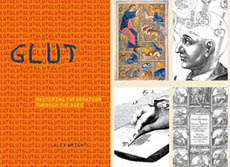Hyperwords
March 1, 2006
Frode Heglund makes the case for a new kind of hyperlink: a "hyperword." Briefly, the idea is to supplant the traditional author-determined link with a set of user-controlled interactions.
Or look up references like Wikipedia, dictionaries and so on. This could be considered ‘implicit’ links - a word is always implicitly linked to its entry in the dictionary for example.
Other interactions could be useful, such as printing, blogging about, tagging or emailing a chunk of text, complete with attribution, quickly and easily, with a single click.
Different dimensions of the text should be accessible, such as the map of a place, perhaps even the local time right now and the temperature. Why not? ... Why should the world wide web be limited to the authors simple links? Why should it be limited to software designers browser controls?
I joined the beta a few weeks ago, and have played around with the plugin a few times (I would have used it more if they released a Safari version). The tool functions as a right-click contextual menu, activated whenever you select a patch of text in any Web page. A drop-down menu lets you shunt the selected text into various search engines, dictionaries, Wikipedia, translation services, Google Maps and so forth.
In principle, it's a handy tool. But I would have to overcome a few personal adoption barriers before I started using it on a regular basis. As a consumer, I can see the appeal of opening up texts to interact with the rest of the Web; but as a writer, I instinctively bristle at the idea of giving up that kind of control. I suspect that disposition colors the way I read things on the Web; I like my documents to feel fixed, not fluid. And the Web feels squishy enough as it is. That, and somehow the premise of cracking open someone else's document with a toolbox of Web services feels like a kind of violation. This is undoubtedly my own personal neurotic hangup.
All that said, Hyperwords makes for an interesting experiment, certainly worth a look. I'll look forward to seeing how it plays out.
see also: Mark Bernstein
tag: hyperwords
File under: Informatics
_____________________« Chick Corea | Postum »
GLUT:
Mastering Information Through the Ages
New Paperback Edition
“A penetrating and highly entertaining meditation on the information age and its historical roots.”
—Los Angeles Times
